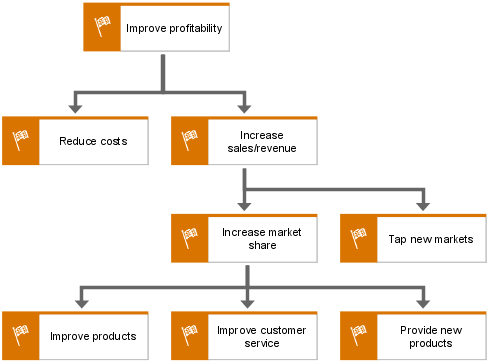Objective diagram
Before a company starts modeling, analyzing, or optimizing business processes (Business Process Reengineering), it should define the objectives it wants to achieve by modeling the company's business processes.
In the objective diagram, companies can define their (business) objectives, arrange them in an objective hierarchy, etc.
An objective defines future business objectives that are to be achieved by promoting success factors and implementing new business processes.
Factors that may be critical for achieving objectives can be specified, arranged in a hierarchy, and assigned to the goals they help accomplish.
Success factors specify the aspects that need to be considered in order to achieve a specific business objective. They are assigned to business objectives in the objective diagram.
This model type is linked to other model types of the requirements definition via the Function object type. The functions (business processes) contributing to the achievement of an objective can be displayed for every single objective. When establishing the procedure model in the business process modeling and optimizing phase, both the prioritization of objectives as well as the assigned functions should be taken into account.
The following figure shows an example of an objective diagram.

